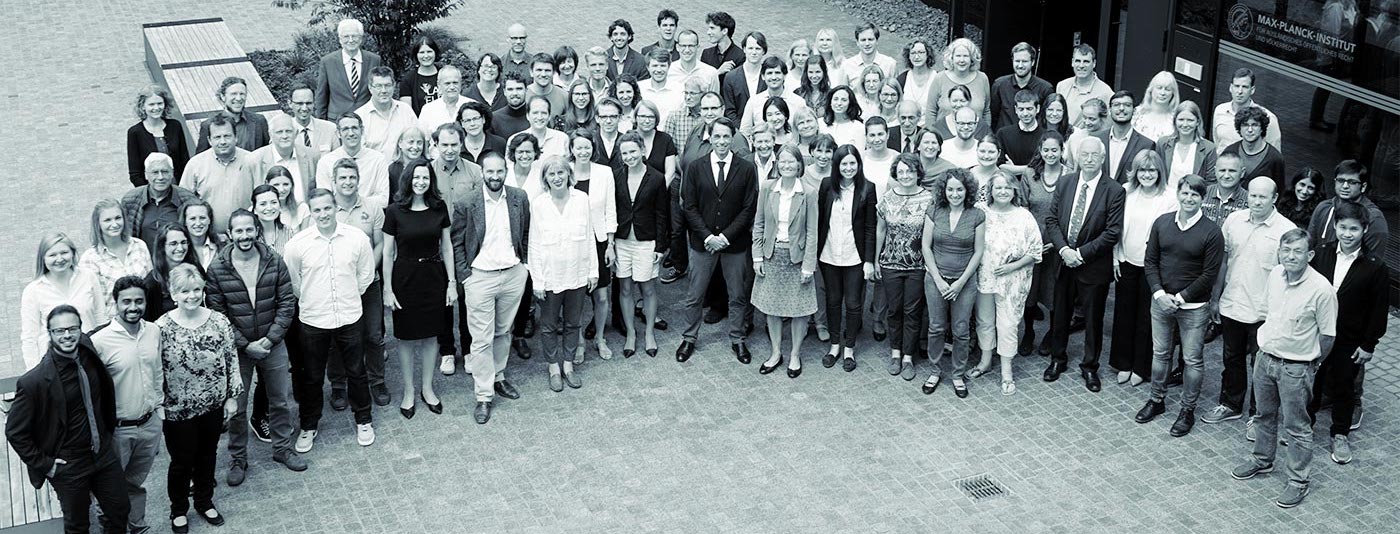Researchers at the Max Planck Institute for Comparative Public Law and International Law work in a variety of legal fields, addressing a broad spectrum of topics, and using diverse methods. The research deals with issues of public international law, European law and domestic public law. Research questions vary, and range from the doctrinal and theoretical analysis of fundamental issues over a systematisation or systematic comparison of legal norms to proposals for law reform and solutions for current legal problems.
The research of the Institute is characterised by thematic, theoretical and methodological pluralism. It is part of the mission of a Max Planck Institute to foster and practice academic pluralism. A number of events and projects at the Institute are aimed at confronting the different thematic and methodological approaches with each other and at allowing for a mutually stimulating dialogue. This is also one of the reasons why the Institute is not formally divided into departments.
Our research starts from the premise that public international law should constitute a global order, and should ideally be neither just one manifestation of national or regional hegemony nor merely an instrument for realising particular policy interests. Projects of the Institute seek to study and elaborate both the normative autonomy of international law and its quality as a global, not regionally or culturally fragmented order. They thus seek to contribute to the further globalisation of the discourse on international law.
Because public international law and domestic public law are closely interdependent, a doctrinal, theoretical, empirical, ethical and interdisciplinary examination of both bodies of law and their mutual relations is needed. A number of studies are dedicated specifically to the linkages between international, supranational and domestic regimes. In this context, comparative law is not considered as a separate academic discipline, but as an integral part of doctrinal, theoretical, and empirical analysis.
